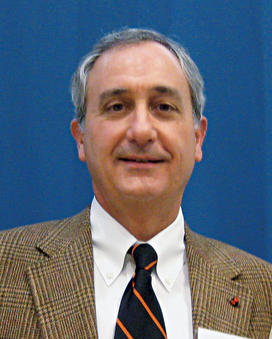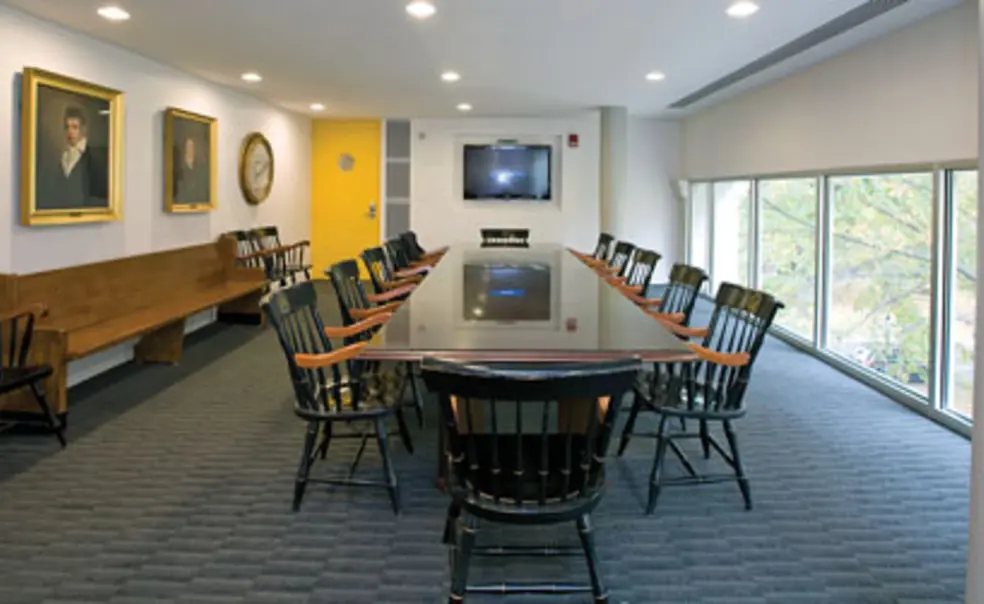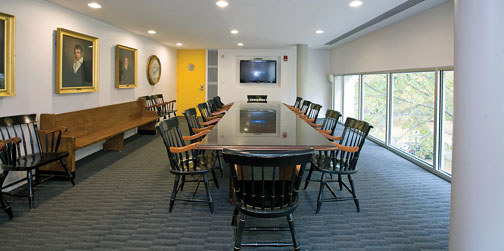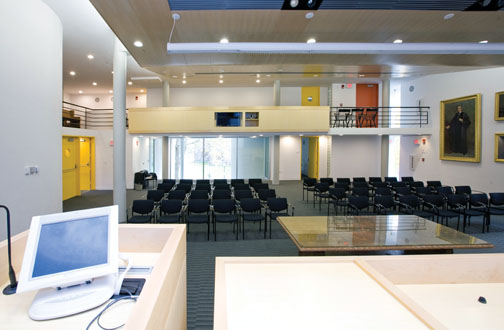Keeping up with the times
Whig-Clio’s home for contentious topics receives a $3.8 million makeover

The American Whig-Cliosophic Society celebrated a $3.8 million renovation of Whig Hall Nov. 14, hoping it will ensure that the nation’s oldest literary, political, and debating society remains a “home of dialogue about controversial issues” on campus, said president Ben Weisman ’11.
“In the past Whig-Clio was the organization on campus, and it was just fundamental to everyone’s education,” Weisman said. While today there is more competition for students’ attention, he said, opportunities to engage in contentious topics outside the classroom remain important. For example, Whig-Clio hosted a talk Sept. 29 by Danish cartoonist Kurt Westergaard, whose controversial depiction of the prophet Muhammad sparked violent protests across the Muslim world.
The renovation — the most significant remodeling of Whig Hall since its reconstruction following a devastating fire in 1969 — includes both aesthetic and functional improvements, such as greater energy efficiency. The Senate Chamber now boasts improved acoustics, a new gallery that seats 25, a new dais, and the University’s largest videoconferencing system.
The Princeton architectural firm of Farewell Mills Gatsch, which designed the project, received a Preservation Merit Award from the New Jersey chapter of the American Institute of Architects for its work. Michael Farewell *78 and Michael Mills ’73 are partners in the firm.
The upgrades are essential to maintain the society’s draw for significant guest speakers, according to Skip Rankin ’72, president of the society’s board of trustees and a former undergraduate Whig-Clio president. “Students now have other places to congregate and discuss current affairs, so our hope is that the revitalization of the building will maintain this as a focal point for interaction among the undergraduate student body,” Rankin said. The new technology would allow Whig-Clio to host multiple speakers at once from remote locations, he said, “not unlike the sort of split-screen you might see on CNN.”
Whig-Clio’s mission remains timely, Rankin said. “I’m a firm believer in the spoken and written word, and I think it’s important that students are trained to express themselves orally,” he said. “It’s not something that you can just think about, you have to actually do it, and these halls have always been to me a major training ground for current undergraduates and for our future leaders.”
Current undergraduate officers have undertaken a number of initiatives to heighten enthusiasm for the society, including a stronger sense of party affilliation for Whig or Clio members and revitalization of the Senate debate program.
Though the society functions primarily as an umbrella group for debating organizations on campus, including the Debate Panel, Model Congress, and International Relations Council, Weisman said that the Senate debates provide a rare opportunity for members of all Whig-Clio subsidiaries to debate one another.
Weisman emphasized the importance of the debates in keeping students engaged in campus issues. “In the past, before the University made any significant decisions, or whenever people could tell that things were changing socially on campus, there was always a Senate debate,” he said. “In the ’80s, for example, there was a series of debates over whether the eating clubs should be forced to go coed.”
The evening prior to the official reopening, a packed Senate chamber debated the merits of establishing a Center for Abstinence and Chastity on campus, a topic that has sparked considerable controversy (the vote was 39–29 against it).














No responses yet